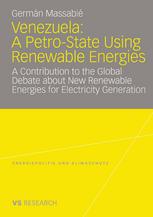

Most ebook files are in PDF format, so you can easily read them using various software such as Foxit Reader or directly on the Google Chrome browser.
Some ebook files are released by publishers in other formats such as .awz, .mobi, .epub, .fb2, etc. You may need to install specific software to read these formats on mobile/PC, such as Calibre.
Please read the tutorial at this link: https://ebookbell.com/faq
We offer FREE conversion to the popular formats you request; however, this may take some time. Therefore, right after payment, please email us, and we will try to provide the service as quickly as possible.
For some exceptional file formats or broken links (if any), please refrain from opening any disputes. Instead, email us first, and we will try to assist within a maximum of 6 hours.
EbookBell Team

4.1
10 reviewsIn spite of the economic role of oil, Venezuela has started developing hydroelectricity since the 1950s. At present, the country is trying to introduce additional renewable energy sources (RES) but still has to overcome a series of hurdles in order to deploy them. Unlike other developing countries, oil countries such as Venezuela do not lack financial means and sometimes show a tendency to solve problems by using money when other approaches could be more helpful. The main goal of this qualitative, comparative policy analysis is to find out whether the availability of oil revenues restraints or favors the adoption of RES. Based on the rentier state theory, Germán Massabié examines the reasons why Petro states try to dispose of their natural wealth to take advantage of non-conventional energy sources. He analyses and interprets primary and secondary data collected in Germany and in Venezuela and draws on interviews with Venezuelan experts, policy makers, and key actors. The study allows a look beyond laws, development programs, and official statements.